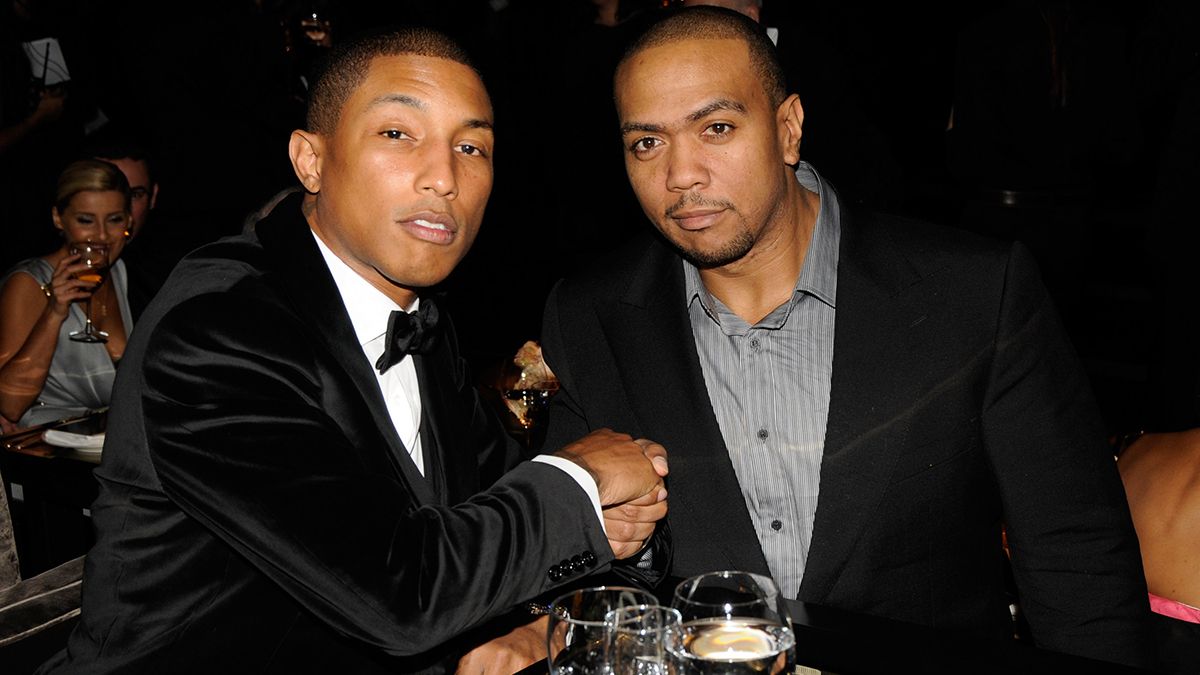“Our studios were right beside each other. I’m working on Missy; he’s working on Kelis. I walked in, and I heard Caught Out There. I walked back to Missy and said, ‘We gotta rethink’”: Timbaland on being inspired by the “genius” of Pharrell Williams
“Who does a hook like that?”

Timbaland and Metro Boomin are two of the most successful and influential hip-hop producers of the past three decades, so it’s hardly surprising that, when they were put together by Rolling Stone recently, the conversation proved to be wide-ranging and insightful. And one thing that both men agree on is that, when it comes to beatmaking, less is often more.
Addressing Metro Boomin, Timbaland says: “You can add little trinkets, but why? It’s a hit. To me, knowing when something is done is what makes you a classic producer. A lot of people overproduce: I call it producer porn. When you know how to stop, that’s a beautiful thing.”
Later in the chat, Timbaland points to the influence of early collaborator Missy Elliott, who would frequently reject his beats because they were too complicated. “When I go back and listen I be like, ‘OK, I can see her point.’ They weren’t simple enough,” he admits.
Metro Boomin goes on to describe Work It, which Timbaland produced with Missy, as “one of the hardest beats of all time.”
“It only had three sounds,” replies Timbaland.
Drawing inspiration from other artists is a recurring theme of the conversation. Timbaland grew up alongside Pharrell Williams, for example, and admits that, back in the day, when Williams was working in The Neptunes with Chad Hugo, the two of them had a healthy sense of competition.
“Our studios were right beside each other,” he recalls. “I’m working on Missy; he’s working on Kelis. I walked in, and I heard [sings the hook of Kelis’s Caught Out There]. I walked back to Missy and said, ‘We gotta rethink our whole shit.’ I had to go sit in the lounge. Who does a hook like that? He’s a genius. We didn’t allow no bullshit to come out.”
Get the MusicRadar Newsletter
Want all the hottest music and gear news, reviews, deals, features and more, direct to your inbox? Sign up here.
Elsewhere, Metro Boomin reveals how he got his start: “In seventh grade, my mom had got me this laptop for Christmas,” he says. “It was a PC, one of those HPs or something. I got a cracked version of Fruity Loops [now FL Studio] and just started trying stuff on there. I didn’t really know how to use it, or how to XYZ, but just trial and error all night, every day.”
Later on, working with Young Thug inspired him to learn Pro Tools. “I had this townhouse, and I went and got Pro Tools, a home Mac, a mic, a couple pairs of headphones, and just figured it out at the house,” he remembers. “I started just trying stuff. Not too long after that, I started working with Travis [Scott], and I would watch him do background vocals, then go try some of that stuff on Thug’s music.
“It was a whole new world to me. Before that, I was still producing: I would make beats, work with artists, go back and forth with ideas, give a hook idea, but now, I was upping my technical game. Then I fell in love with that whole editing process, which is one of the main parts of my game today.”
Timbaland, meanwhile, accepts that his role in the music industry is now slightly different, and cites the example of Quincy Jones.
“When Quincy did Thriller, he was still Quincy Jones, but he knew what drummer to get, who to write, this person, that person, and Michael Jackson will be the biggest. He didn’t have to write everything; he knew who to get.”
Check out the full conversation in the video below.




I’m the Deputy Editor of MusicRadar, having worked on the site since its launch in 2007. I previously spent eight years working on our sister magazine, Computer Music. I’ve been playing the piano, gigging in bands and failing to finish tracks at home for more than 30 years, 24 of which I’ve also spent writing about music and the ever-changing technology used to make it.

"People were always asking me, but I never used to tell them": Trevor Horn finally dishes out his sampling and drum machine tips in a new studio interview

“How do people do that? No click, he played through it and ‘bam’”: Prince’s ability to keep time when he was recording drums was remarkable, says his engineer, but it also made things difficult during the editing process
Most Popular







![Missy Elliott - Work It [Official Music Video] - YouTube](https://img.youtube.com/vi/cjIvu7e6Wq8/maxresdefault.jpg)
